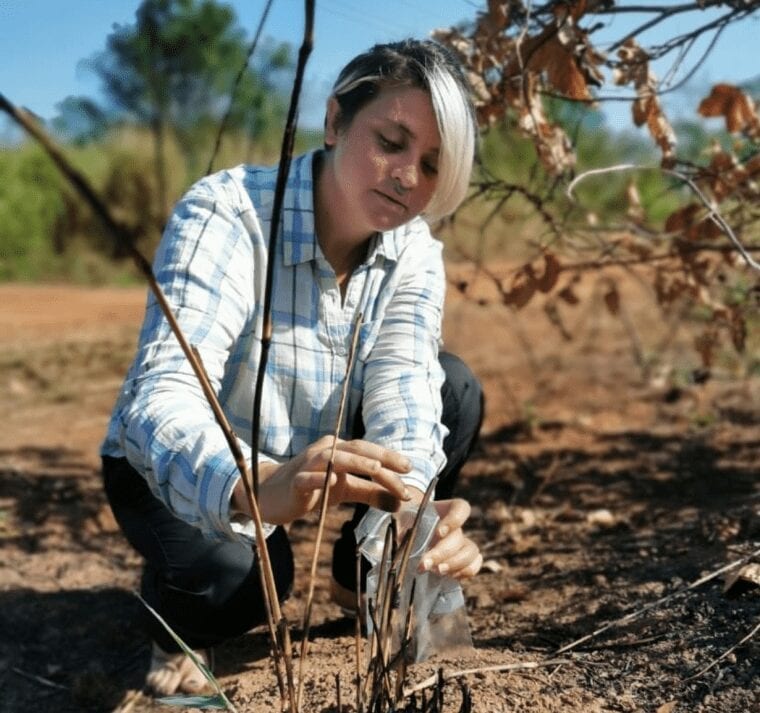
Honeybees have been dying in record numbers, threatening the continued production of nutritious foods such as apples, nuts, blueberries, broccoli, and onions. Without bees to pollinate these crops, the environmental ecosystem—and our health—stands in the balance. Have we reached the tipping point, where the plant-pollinator system is due to collapse?
There was no way to calculate that—until now.
Using statistical physics, Northeastern network scientist Albert-László Barabási and his colleagues Jianxi Gao and Baruch Barzel have developed a tool to identify that tipping point—for everything from ecological systems such as bees and plants to technological systems such as power grids. It opens the door to planning and implementing preventive measures before it’s too late, as well as preparing for recovery after a disaster.
The tool, described in a new paper published on Wednesday in the prestigious journal Nature, fills a longstanding gap in scientists’ understanding of what determines “resilience”—that is, a system’s ability to adjust to disturbances, both internal and external, in order to remain functional.
“The failure of a system can lead to serious consequences, whether to the environment, economy, human health, or technology,” said Barabási, Robert Gray Dodge Professor of Network Science and University Distinguished Professor in the Department of Physics. “But there was no theory that considered the complexity of the networks underlying those systems—that is, their many parameters and components. That made it very difficult, if not impossible, to predict the systems’ resilience in the face of disturbances to those parameters and components.”
“Our tool, for the first time, enables those predictions,” said Barabási, who is also a leader in Northeastern’s Network Science Institute.
Taking a system’s temperature
Barzel, a postdoctoral fellow in Barabasi’s lab who collaborated on the research and is now at Bar-??Ilan University, draws an elegant analogy between the role of temperature in identifying that tipping point in a pot of water and the single parameter—a temperature equivalent, as it were—that their tool can uncover to identify the tipping point in any complex system.
Consider: 100 degrees Celsius is the tipping point for water changing from liquid to vapor. Think of liquid as the desirable state for the system and vapor as the undesirable one, signifying collapse. Millions of parameters and components quantify what is going on within that pot of water, from the relationship of the water molecules to one another to their speed and the chemical bonds linking their elements.
As the water heats up, those parameters and components continually change. Measuring those multitudinous changes over time—a microscopic approach to assessing the water’s state—would be impossible. How, then, are we to know when the water is reaching the threshold that divides the desirable (liquid) state from the undesirable (vapor) state?
Simple: Using a single parameter—temperature. As the water in the pot reaches, say, 99 degrees Celsius, alarms go off and we know to remove it from the heat.
“Statistical physics has found that you can crunch down all of these millions of parameters and components into one number—the temperature,” said Barzel. “We take it for granted now, but that was a tremendous scientific achievement.”
The researchers’ tool similarly crunches down all the parameters and components of any complex system into a single crucial number. It enables us, essentially, to take the system’s “temperature” to determine its health and respond accordingly.
Learn more: Researchers find the tipping point between resilience and collapse in complex systems
The Latest on: Resilience and collapse in complex systems
[google_news title=”” keyword=”resilience and collapse in complex systems” num_posts=”10″ blurb_length=”0″ show_thumb=”left”]
via Google News
The Latest on: Resilience and collapse in complex systems
- Why societies grow more fragile and vulnerable to collapse as time passeson April 26, 2024 at 12:35 am
Our findings are supported by promising studies on "critical slowing down". Before a complex system undergoes a large-scale shift in structure, or a "tipping point", it often begins to recover ...
- Johns Hopkins APL Developing a Suite of Solutions to Address Coastal Challengeson April 25, 2024 at 11:49 am
As coastlines become more difficult to secure, APL is combining expertise in materials engineering, marine biology, plant biology, computer science and modeling to fortify coastal resilience.
- Why societies grow more fragile and vulnerable to collapse as time passeson April 24, 2024 at 5:00 pm
Before a complex system undergoes a large-scale shift in structure ... Or they could be a societal collapse involving the enduring loss of government, writing, monumental structures, and population ...
- Functional capacity in old age is like an ecosystem that may collapse when disruptedon April 4, 2024 at 5:00 pm
In old age, a tighter interlinkage between different domains of functional capacity may indicate a loss of system resilience ... affect others and lead to a collapse in functioning.
- How to Avoid Food System Collapseon April 3, 2024 at 6:50 am
The new modeling suggested, though, that complete collapse of the ... Can our food systems survive this kind of shock? Food systems are dizzyingly complex, encompassing crops grown in fields ...
- President Biden’s Visit to Baltimore Rebuilding Hope and Resilience After the Bridge Collapseon March 29, 2024 at 11:08 pm
his visit represents a crucial step towards addressing the immediate challenges and fostering long-term resilience in the face of adversity. Assessing the Impact of the Bridge Collapse ...
- How to Avoid Food System Collapseon March 28, 2024 at 5:00 pm
The new modeling suggested, though, that complete collapse of the Atlantic Ocean ... see big changes in weather patterns. Can our food systems survive this kind of shock? Food systems are dizzyingly ...
- Key Bridge Collapse Was 'Infrastructure System Failure'on March 27, 2024 at 5:01 pm
Early Tuesday morning, the cargo vessel Dali smashed into the Francis Scott Key Bridge in Baltimore, triggering a deadly collapse ... systems — not just in the bridge itself, but this is a ...
- Collapse OS, An OS For When The Unthinkable Happenson October 26, 2019 at 3:10 am
His solution is CollapseOS, an operating system designed for resilience and self-replication, that runs upon the minimal hardware of an 8-bit Z80. It’s a pretty basic operating system so brace ...
- Alternative Stable Stateson January 27, 2018 at 2:14 am
Resilience: The amount of change or size of perturbation required to transform a system from being maintained ... Diamond, J. M. Collapse. New York, USA: Viking Press (2005).
via Bing News










